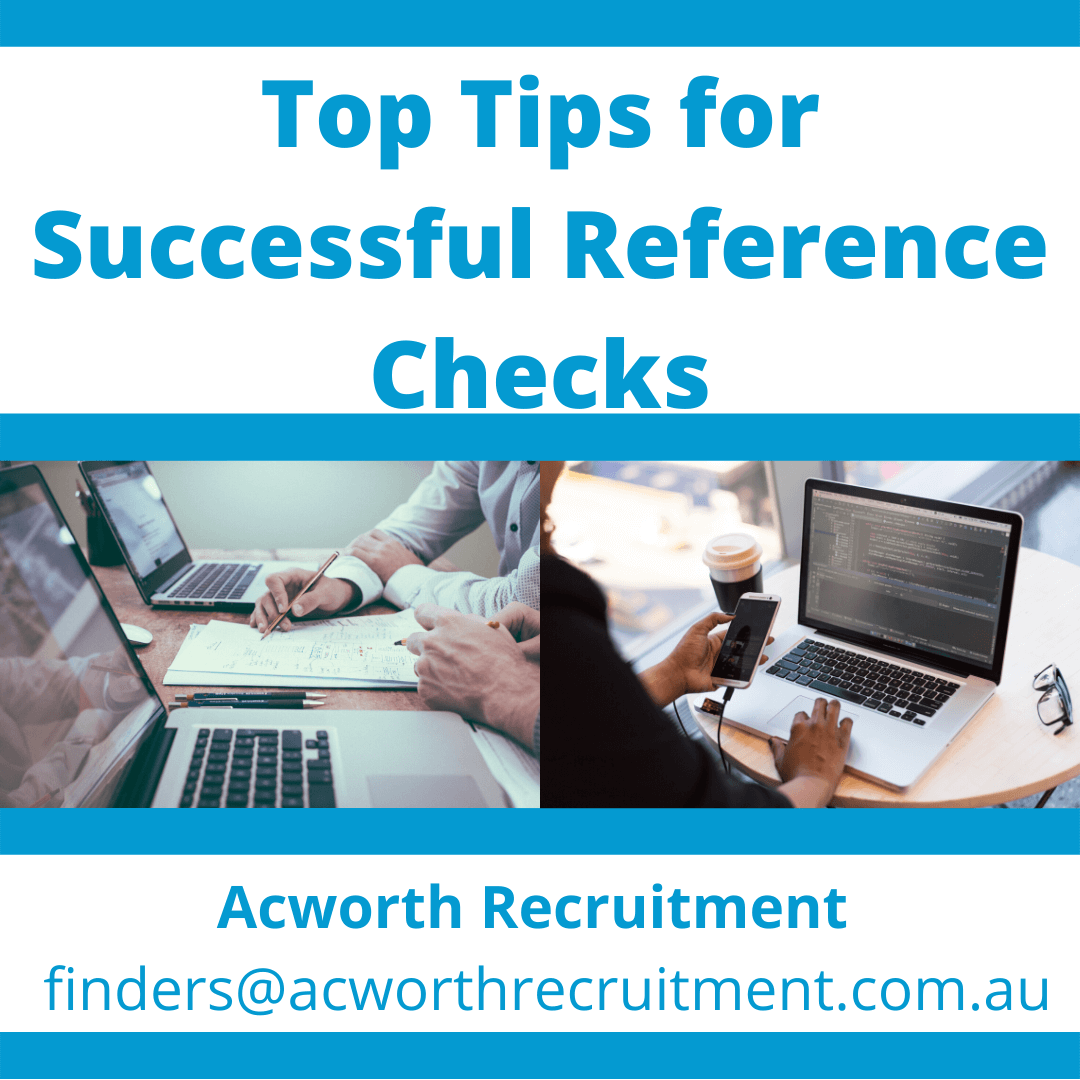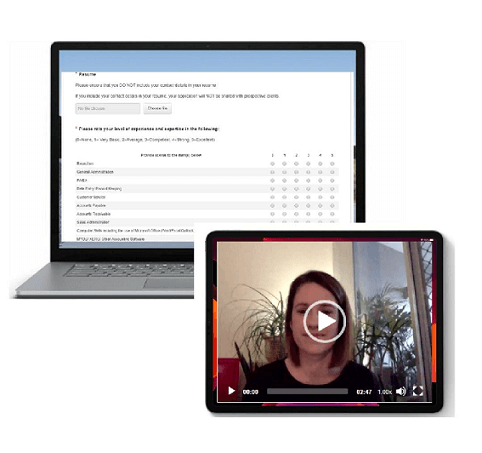
If you’ve been following our recent articles about the recruitment process, you’ll know that we have explored effective shortlisting and interviewing. This article will explore the next step in the recruitment process – reference checking.
Reference checks involve contacting a candidate’s previous employers, supervisors, or other listed contacts to learn more about their employment history and gain further insight into how the candidate ACTUALLY performs in a working environment.
Here are our top 3 tips for Reference Checking:
- Ask for RELEVANT Referees from the candidate – Don’t just go off their resume!!! As mentioned in our previous article, Acworth Recruitment recommend asking the candidate to provide you with the contact details (Name, Position, Company, Phone, Email) for three Managers/ Supervisors from their most recent positions. With the candidate providing their referee contact details, you are likely to have valid & useful referees – and you have permission to contact them (which is important under the Privacy Act). If the candidate cannot (or will not) provide their Manager’s details, then push for a valid reason and pass the responsibility back on to them to chase up their new contact details or to provide an alternate Manager.
- Put together a templated Reference Check Document and record the information. Not only does this provide a structured list of questions or areas of interest, it can also ensure you have detailed written records if you ever have any potential issues with unsuccessful candidates or the Fair Work Ombudsmen.
- As with Interviews – Make sure you DO NOT ask discriminatory questions. The focus of your questions should be framed around the candidate’s reliability, punctuality and work ethic, etc. but should not include asking about their family commitments or extra-curricular activities.
Employing the wrong person in a role is a very costly exercise – and potentially damaging to the business. Whilst conducting Reference Checking is not fool proof, it has the potential to value-add and can help to clarify particular skills, traits & attributes that apply to the workplace and the role – and can help hiring managers feel confident in their recruitment decisions.
Why Not Outsource YOUR recruitment and save the Headache, Time and Money?
Acworth Recruitment is a genuine outsource recruitment option with a cost-effective hourly charge model. You can outsource as much or as little as you want. No job is too big or too small – $50 to $5,000.
With our online application tracking software and pre-recorded video interviewing, Acworth Recruitment work closely with our clients and provide detailed information about our candidates. We can conduct reference checking on behalf of our clients and provide the extra information to help with decision making.
For an obligation free discussion feel free to give Kim Acworth a call on 0411 278 281 or email at finders@acworthrecruitment.com.au.
Find out more Here












